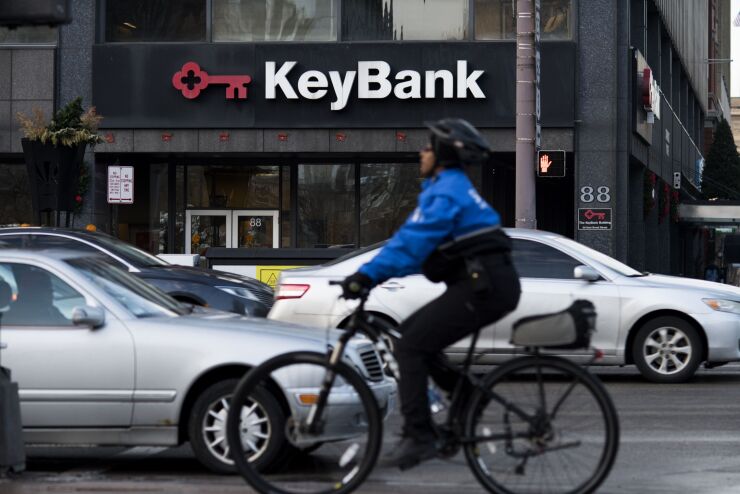The Bank of Nova Scotia is investing $2.8 billion in
Toronto-based Scotiabank would get a 14.9% stake, making it the largest shareholder in
The Canadian bank has a large footprint in Mexico, and its executives said the deal gives Scotiabank options in its quest to build a North American corridor.
As part of the deal, Scotiabank agreed to not bump its ownership above 19.9% for five years, quashing any speculation that it would soon acquire
Instead,
"There's no doubt that this additional capital enables us to be front-footed,"
That would help
The company's preparedness for higher capital requirements from the Fed is a question that has "dogged
Scotiabank approached
The deal accelerates that turning point, Gorman said. The bank has been stuck with some low-yielding bonds it bought a couple of years ago, and it has been unable to replace them with higher-paying ones without taking a loss.
But with Scotiabank's investment,
The objective of the restructuring would be "accelerating the timing of expected profitability, liquidity and capital improvements, and generally increasing resiliency," the company said.
Scotiabank would make the minority investment at a price of $17.17 a share, an almost 18% premium to
The investment will happen in two stages, and Scotiabank can choose two members to add to
Gorman emphasized that
"This is a strategic investment at a premium," Gorman said. "It just so happens that it happens to be by an industry participant."
For Scotiabank, the bigger question is whether
Scotiabank's shares were recently down 3.8%. Investors are "likely going to require tangible proof … before throwing full support" behind Scotiabank's purchase, Jefferies analyst John Aiken wrote in a note to clients.
The deal is a "very different approach to gaining traction in the U.S. market" than its peers have taken, Aiken wrote Monday. Rather than taking minority investments, Toronto-Dominion Bank, the Bank of Montreal and the Royal Bank of Canada got branch networks in the U.S. by buying American banks.
Scott Thomson, president and CEO of Scotiabank, told analysts Monday the deal is an "important early step" toward the bank's vision of expanding its footprint. It already has a major presence in Mexico and the Caribbean, but an "enhanced U.S. presence will be necessary over time to fully execute on our North American vision," Thomson said.
The deal offers "attractive financial returns" in the short term for Scotiabank shareholders, he said. But there are also "mutually beneficial strategic opportunities in the future," Thomson said, such as partnerships in wealth management, payments innovation and services for commercial clients.
In the latter space, the two have complementary businesses, Thomson said, noting
Scotiabank will make an initial $800 million under the deal that would give it 4.9% ownership of







